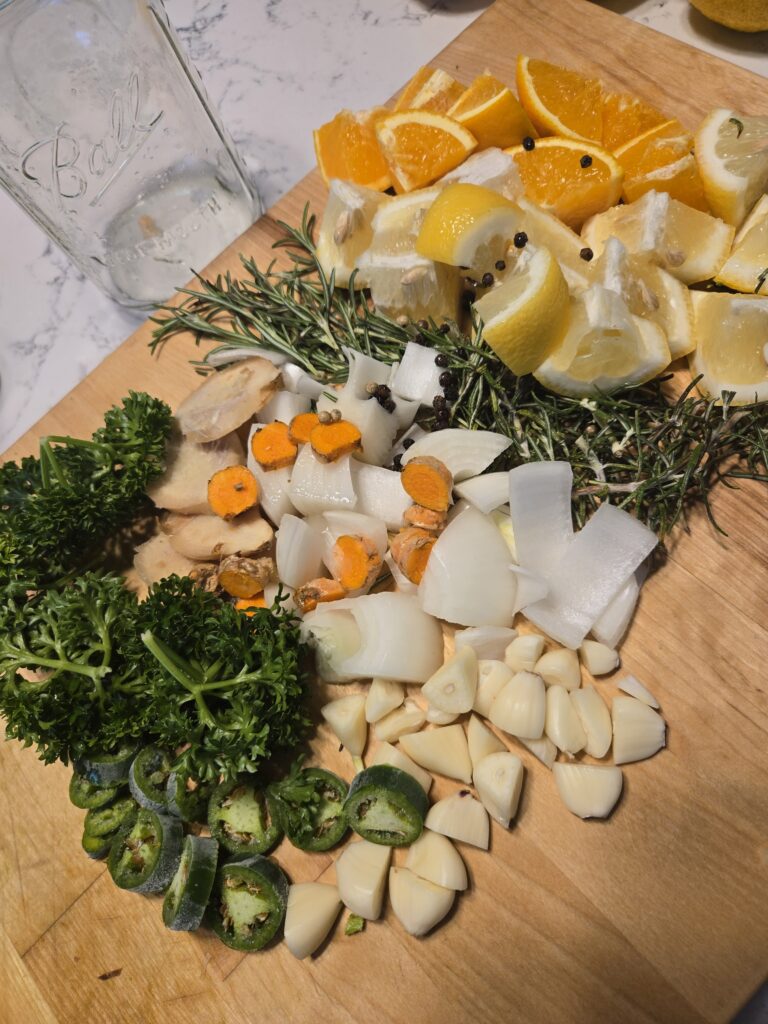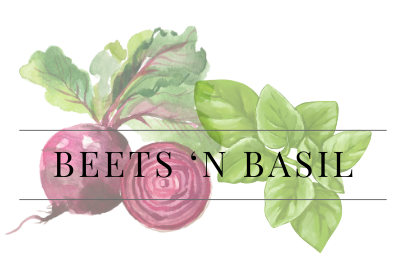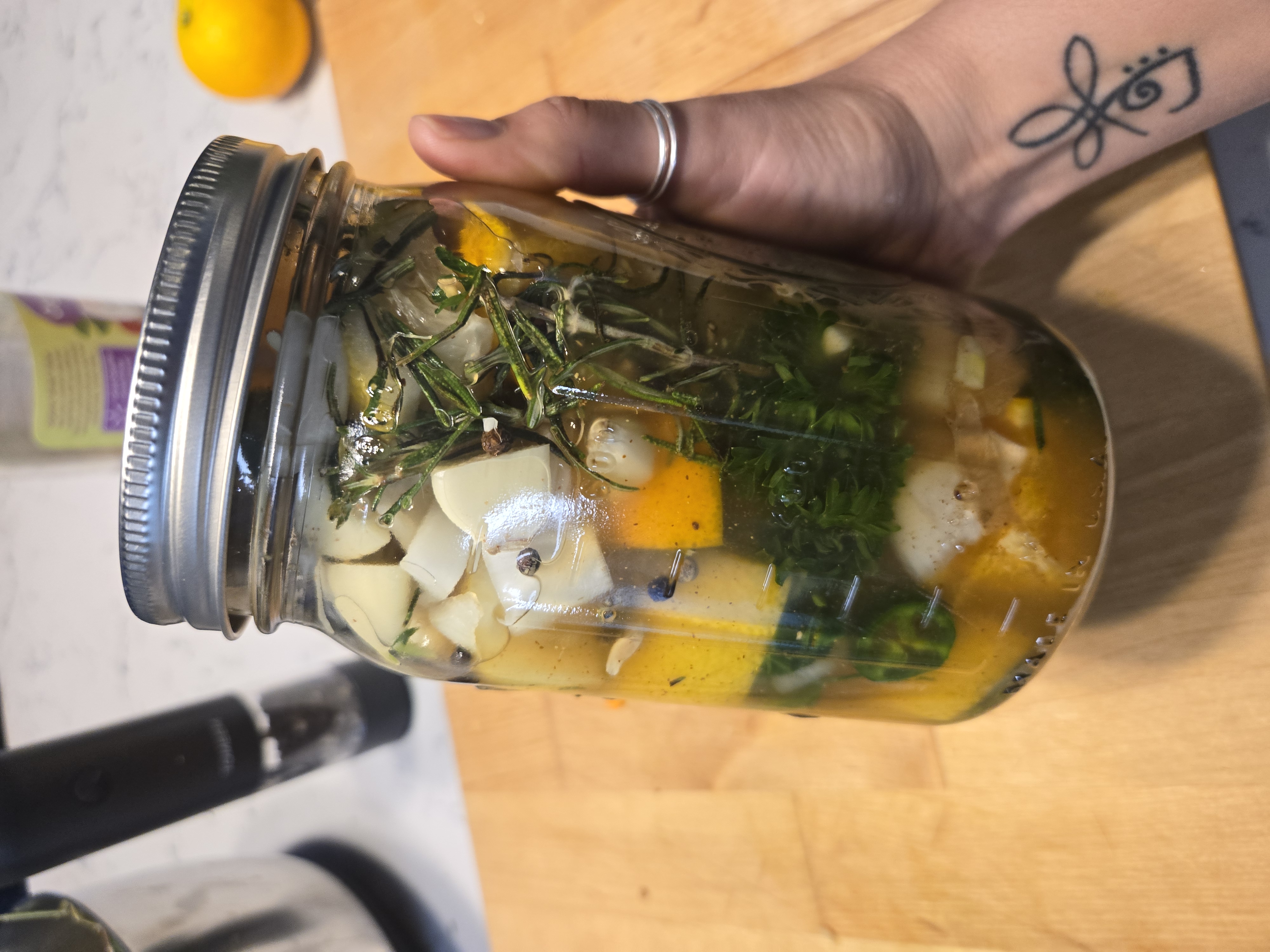Fire cider is a traditional herbal tonic the can help bolster the immune system and can support your body in clearing congestion and colds. Drawing from folk medicine traditions, this vinegar-based tonic builds on practices of infusing vinegar with powerful herbs and spices like turmeric, ginger, and rosemary.
Uses and Benefits of Fire Cider
Fire cider is primarily used as a preventive health tonic and remedy for seasonal illnesses like colds, flu, and sinus congestion. It is also popular as a digestion aid, circulatory stimulant, and even an energy booster. Below are some of its benefits:
- Immune Support: The potent combination of herbs and spices, such as garlic, ginger, and turmeric, along with apple cider vinegar, provides anti-inflammatory, antimicrobial, and immune-boosting properties.
- Digestion: Ingredients like rosemary, ginger, and cayenne can support digestive health, helping alleviate bloating, gas, and indigestion.
- Circulation and Warming: The heat from ingredients like cayenne, jalapeño, and horseradish increases blood flow and creates a warming effect, which can be beneficial during colder months.
- Natural Decongestant: Spicy ingredients like cayenne, horseradish, and peppers help open nasal passages and relieve sinus congestion.
Many people take fire cider as a daily shot, especially during fall and winter, mixed with a dab of honey and lemon juice, or use it diluted in water. It can also be used as a zesty addition to dressings, marinades, and soups.

Ingredients Used in Fire Cider
Fire cider recipes are versatile and making a homemade batch allows you to adjust the ingredients to your preference. Apple cider vinegar is a required ingredient and I suggest always adding turmeric. Turmeric contains curcumin which is great for it’s anti-inflammatory properties. The typical ingredients used include a combination of the below:
- Apple Cider Vinegar: The base of fire cider, apple cider vinegar, adds the necessary probiotics and is what helps the infusion of all of the ingredients.
- Sauerkraut Brine: This ingredient is optional but is great to add for extra probiotics if you have on hand.
- Horseradish: Known for its sinus-clearing and antibacterial effects. (I am not a fan of horseradish so I don’t include in my fire cider.)
- Garlic: An immune-boosting powerhouse with antimicrobial, antiviral, and antifungal properties.
- Onion: Another antimicrobial ingredient that supports immunity and respiratory health.
- Ginger: Soothes digestion, reduces inflammation, and offers antibacterial and antiviral properties.
- Turmeric: An antioxidant-rich root containing curcumin which can help block certain molecules that cause inflammation in the body.
- Black Peppercorns: This helps increase the bioavailability of turmeric. You don’t need a lot, just a few corns will do the trick.
- Cayenne or Hot Peppers: Adds heat to stimulate circulation and warm the body. Be careful with extremely hot peppers as this can lead to a significantly spicier tonic, especially if left to infuse longer.
- Rosemary: Using this herb fresh is best. It’s high anti-oxidant and anti-inflammatory properties make it a great herb to add to your tonic.
- Parsley: Can help the kidneys flush excess fluids and reduce bloating. It’s also high in Vitamin C.
- Honey: Adds sweetness and balances flavors, but also provides antibacterial and soothing properties. Use raw honey, preferably.
- Lemon or Orange: Offers a boost of vitamin C and adds a tangy flavor.
Optional ingredients to further enhance flavor and benefits include thyme, cinnamon, and even berries like elderberries, which are known for their immune-boosting properties.
How long does Fire Cider last?
After preparing fire cider, it’s typically left to infuse for at least 3-4 weeks before being strained and bottled. This allows the nutrients and medicinal compounds to meld into a potent, spicy vinegar tonic. You can definitely infuse the tonic longer if preferred. I’ve heard of people infusing for up to 6-8 weeks.
Once strained, the tonic can be stored in a clean, sealed, glass jar. If you are using store bought apple cider vinegar with 5% acidity, the tonic can be stored at room temperature for 6-12 months or more. If you use homemade vinegar it’s best to store in the fridge as the acidity of homemade vinegar varies. Tonic can remain in the fridge for up to 2 years.
This is a perfect recipe to make in the summer when herbs and citrus are fresh and it will be ready right around flu season!
Fire Cider
32
ounces30
minutesThis potent, all-natural remedy is perfect for supporting digestion, boosting immunity, and helping your body fight off seasonal illnesses. Use what you have on hand, it’s not an exact science!
Ingredients
Orange
Lemon
Jalapeños or peppers with similar Scoville rating
Onion
Garlic
Turmeric Root
Ginger Root
Rosemary
Parsley
Peppercorns
1 teaspoon Sea Salt
1-2 Tablespoons honey
Raw Apple Cider Vinegar
Directions
- Note: Since fire cider isn’t a true fermentation process but rather an infusion in vinegar, it doesn’t require precise measurements to preserve.*
- Roughly chop your ingredients and place in a 1 quart (32oz) mason jar.
- How full you fill the jar is up to you as long as the vinegar completely covers the ingredients.
- Cover with a lid and let ingredients infuse for 3-4 weeks or longer.
Notes
- *Although there aren’t measurements for this recipe, it’s important to keep a balance of flavors to ensure that one ingredient doesn’t overpower the others. For example, too much garlic or horseradish can make it very pungent, while too many jalapeños can make it too spicy.
- T

